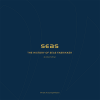Ambiguity and Logic
In his book Frederic Schick develops his challenge to standard decision theory. He argues that talk of the beliefs and desires of an agent is not sufficient to explain choices. To account for a given choice we need to take into consideration how the agent understands the problem, how he sees in a selective way the options open to him. The author applies his new logic to a host of common human predicaments. Why do people in choice experiments act so often against expectations? Why do people cooperate in situations where textbook logic predicts that they won’t? What exactly is weakness of will? What are people reporting when they say their lives have no meaning for them? This book questions the foundations of technical and philosophical decision theory and will appeal to all those who work in that field, be they philosophers, economists and psychologists.
• Schick is a well-established figure in decision theory with two previous Cambridge titles • Written with verve and economy • Applies non-standard logic to common human predicaments
Contents1. Living with ambiguity; 2. A dilemma for whom?; 3. Having, gaining, losing; 4. In support of persuasion; 5. Surprise and self-knowledge; 6. The logic of ambiguity; 7. The meaning of life.
- Forlag: Cambridge University Press
- Utgivelsesår: 2003
- Kategori: Filosofi
- Lagerstatus: Ikke på lagerVarsle meg når denne kommer på lager
- Antall sider: 164
- ISBN: 9780521824583
- Innbinding: Innbundet













